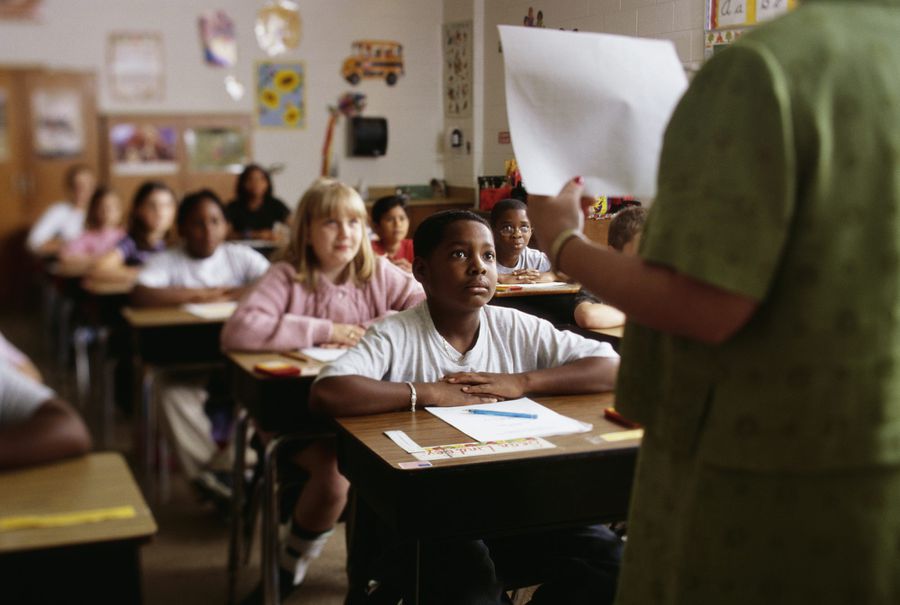
The federal government mandates that students with disabilities have access to the services they need to thrive in school, with the least restrictions possible. But things rarely work that way, and parents and students are left scrambling for solutions as teachers are overwhelmed—and often underprepared to support them.
NPR reports that nationally there’s a shortage of educators to support students with disabilities. Despite the federal government’s guarantee of services via the Individuals with Disabilities Education Act, 48 out of 50 states in the US have reported that disabled students do not have enough teachers to support them.
Special education teachers face the same overwhelming demands and receive the same low pay as other teachers, and also contend with additional stressors. They have meetings with specialists, facilities, and parents to ensure students are supported. They have to be more patient and prepared for students who may express discomfort in more explosive ways, and they work longer hours due to paperwork. These factors result in a higher turnover rate for disability educators.
This high turnover rate impacts all disabled students, but when special education teachers quit in Black and brown neighborhoods they are more likely not to be served at all. For Black students specifically, this can result in higher punishment rates, both in and out-of-school suspension, and interactions with law enforcement.
Heather Clarke, a disability rights activist and an adjunct professor of early childhood and special education at Queens College in New York, says the most restrictive Individualized Education Plans (IEP) are given to students in Black and brown communities.
An IEP is a learning plan that specifies the services, learning environment and support a special education student needs. When IEPs are given to disabled students, the goal is to place them in the least restrictive environment possible, so that their learning isn’t disrupted and they can learn along with other students who don’t have IEPs.
However, Black and brown disabled students face higher rates of restraints and exclusion from general education compared to white disabled students. For kids in Black and brown communities, their IEPs can make learning more difficult and can sometimes result in a complete loss of services because often they attend schools with fewer resources. When Black students with disabilities can’t receive the services they need in school, they’re forced to travel to have those needs met or miss out on them entirely. This pattern persists across the U.S.
"Black children are facing this double jeopardy of ableism, because they have this disability, which has nothing to do with their intelligence—but it has to do with their neurodiversity. And the way their brain functions," she says. "And then the fact that they're Black, and their teacher, or the people who are on the team, evaluating them in the school and in the school system are saying, 'Well, they're just not in compliance.'"
Clarke says Black students with disabilities face varying consequences. It can mean Black students miss out on what they need to thrive and are gradually pushed out of the education system. The lack of culturally competent teachers can also look like being over classified as emotionally disturbed and being sent into the school-to-prison pipeline, especially for Black boys.
"It's a really alarming thing, when we're talking about six-year-olds being classified as emotionally disturbed when in all likelihood, the child has dyslexia, and they're acting out because they cannot read— or the child is autistic," she says. "And they're acting out because they don't have the right support system in place. And so we see this over and over and over and over again, across the country. And it is leading to the push out of Black children in preschool."
She notes that the issue is bigger than the shortage of special education providers. It's also a shortage of culturally competent instructors to support Black students, particularly those with disabilities.
Still, Clarke believes there's hope to better support Black students with disabilities impacted by the shortage of teachers. She says the answer is community schools where Black students can get all of their services in one place.
"No one should have to drive across their state to get to that one occupational therapist, that one speech pathologist, that one psychologist," she says. "We can actually build community schools in Black neighborhoods that have that disability, education, justice, that is culturally responsive, and that looks like the community it serves. "
She says ensuring more schools in Black communities have these resources doesn't just help students. It can help aspiring and overwhelmed educators, as well.
Clarke notes the opportunities to funnel Black students directly from surrounding colleges or universities into teaching in community schools, particularly HBCU students. Black educators who are pursuing disability education will be more familiar with the local community and culture of the students they will serve.
"We can actually build community schools in Black neighborhoods that have that disability and education justice, that is culturally responsive, and that looks like the community it serves," she says. "There's a precedent for that. It's happened across cities. And we can keep building upon that."
